| If you can't view the email, please click here. |
|
|
|
Spring 2019 Vol. 18 No. 1
|
|
Editorial Forward
“TPQ’s 2019 issue focuses on women’s empowerment and progress towards gender equality. A growing body of evidence indicates that higher levels of women’s participation in the economic and political sphere are associated with global GDP growth and a lower propensity for conflict, respectively. Despite this, barriers for women persist—from discrimination in the work place to gender-based violence to exclusion from decision making bodies and peace processes. The articles in this issue examine how elevating the status of women and girls is not only a human rights issue, but also a means for catalyzing global prosperity, stability, and security.”
“Progress on gender equality across the board is far too slow. However, the articles in this issue shine a light on how some of the obstacles can be overcome—on a grassroots, government, and international level. We are grateful to the authors for sharing their opinions and recommendations, and look forward to feedback from our readers.”
|
|
|
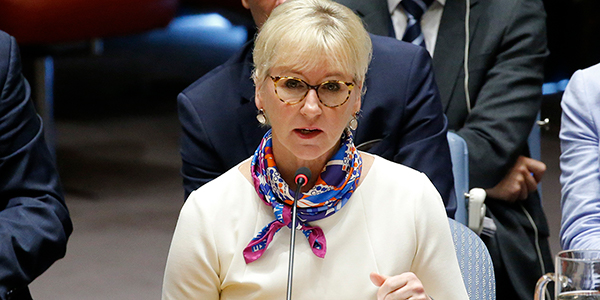 |
Sweden’s Feminist Foreign Policy Illustrated
Therese Hydén
“The Feminist Foreign Policy is not a replacement or an addition to foreign policy. It is about applying a gender equality perspective across all foreign policy matters. It rests on a simple rationale: men and women together make up the population of the world and to achieve sustainable peace, security, development, and economic growth, both men and women must take part in shaping the world we share.”
“Who and what is shaping our future? Who will be holding power and making decisions in the future? Artificial intelligence and digitalization are examples of areas that are already shaping our future. What may seem as neutral and unbiased technological and digital development is created by human beings who are governed by our current gender stereotypes, thus likely to reproduce the inequalities that we have today. A gender-sensitive approach is needed in these strategic spheres.”
“Gender equality remains an uphill battle, but feminist foreign policy is no longer ignored nor something to laugh at. Sweden is not alone but has in fact been joined by some 80 countries that have developed their own policies and national action plans on gender equality. Gender equality is about hardcore economic growth, development, and security. Without gender equality, there will only be awed security, unsustainable development, and stunted growth.”
|
|
|
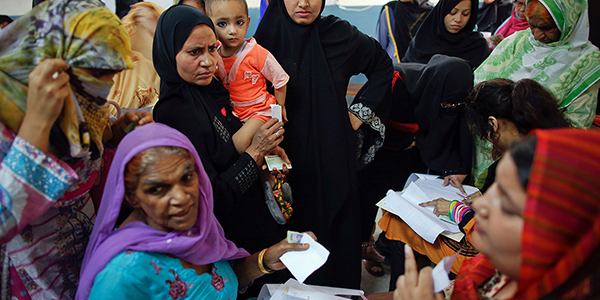 |
Advancing Women’s Political Leadership: Leave No One Behind
Emine Bozkurt
“The ambitions of the 2030 Agenda for Sustainable Development recognize that ending poverty and inequalities require multidimensional strategies to be implemented at national, regional and global levels by different entities in the private and public spheres. The role of regional and global organizations such as the International Institute for Democracy and Electoral Assistance (International IDEA) in promoting the progress towards the achievement of SDG 5 flows from the internationally agreed upon commitments and ambitions to attain sustainable democracy and development worldwide.”
“International IDEA is committed to ensuring that gender equality and women’s empowerment is attained in democracy building processes and institutions across the world. This entails that the pursuit for democracy should institutionalize systems, processes, practices, and policies that transform unequal power relations and promote the equal distribution of power and influence between women and men.”
“There are numerous barriers for women to participate and be represented in political leadership and decision making at all levels. These barriers are entrenched within countries’ social and cultural systems and practices, political parties and systems, electoral systems and processes, and political financing frameworks. The need for sustained and systematic socio-cultural, political, and legislative transformative reforms in several countries across the world cannot be overemphasized. Some critical reforms are needed in electoral systems and processes, political party laws, intra-party democracy processes and systems, and political financing.”
|
|
|
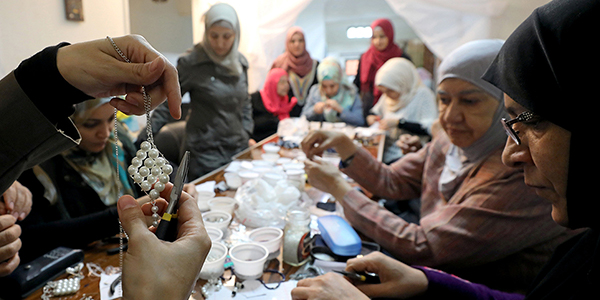 |
Pathways Towards Social Inclusion of Refugees in Turkey
Meryem Aslan & Josephine Whitaker-Yılmaz
“Despite explicit statements of support for the achievement of gender equality from multiple stakeholders engaged in the refugee response, including the European Union, the access of refugee women and girls to their social, economic, and cultural rights continues to be a challenge. For instance, although Syrian women’s access to health services appears to be high, much remains to be done in terms of increasing their access to reproductive health and rights.”
“The social and economic exclusion faced by Syrian women has many commonalities with the experiences of other women in Turkey. Although absolute poverty has been eliminated, challenges in social, economic, and political inclusion preceded the arrival of Syrian refugees, with persisting inequalities between the rich and poor, women and men, and the regions.”
|
|
|
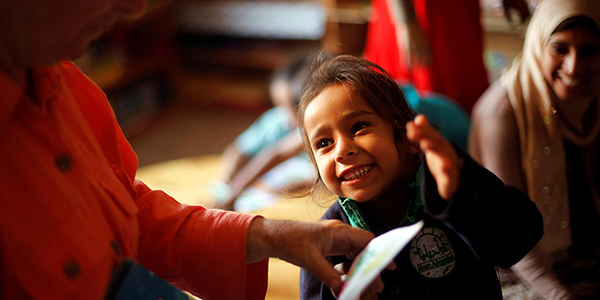 |
Turkey’s Progress on Gender Equality in Education Rests on Gender Politics
Batuhan Aydagül
“Despite Turkey’s commendable achievement in ensuring gender equality in numbers, its progress towards gender equality in education has been far more limited, hindered by the overall gender gap in national politics and economics. The central and provincial hierarchies of the Ministry of National Education (MoNE) are still overwhelmingly masculine and men constitute the majority of school principals. Though the curriculum is relatively more balanced, gender parity in textbooks has recently deteriorated. MoNE projects geared towards raising awareness and the capacity of teachers have only reached a small portion of Turkey’s one million teachers.”
“Given the multi-pillar complexity of gender inequalities inherent in society, campaigns and projects could have been more effective and their effects more sustainable if these were grounded in a theoretical inquiry of these inequalities in the fırst place. Just like in other parts of the world, the signıfıcance of ‘quality of equality’ has been learned the hard way in Turkey.”
|
|
|
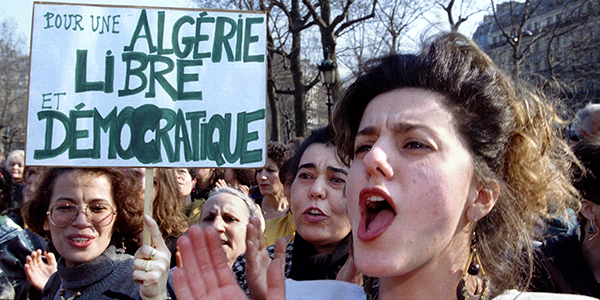 |
The Fight for Democracy & Women’s Rights in Algeria: A Long Legacy of Struggle
Aili Mari Tripp
“The uprising that began in Algeria on 22 February 2019 is a watershed moment in the country’s 57-year history since independence. It reflects the culmination of decades of struggle by two secular movements that have pushed against both the extremist Islamist tendencies in the country, but also against a regime that both tried to contain and use the Islamists to its own advantage. The absence of an Islamist presence in the protests and the secular nature of the demands is notable, suggesting that the country has now entered what some call a post-Islamist era. Post-Islamist sentiments seek to combine religion with rights, liberty, and pragmatism.”
“Following International Women's Day on 8 March 2019, the demands for democracy were combined with demands for women’s rights, as protesters marched with banners, stating, ‘No free and democratic Algeria without freedom of the women.’ Thus, the links between the women activist demands and the post-Islamist tendency could not be clearer.”
|
|
|
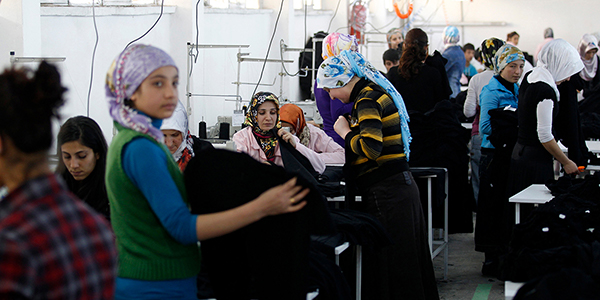 |
Women’s Economic Empowerment for Sustainable Development
Sanem Oktar
“Women’s participation in the labor force still requires significant attention in Turkey as illustrated by a participation rate of 33.6 percent in the labor force. There is no doubt that women constitute a huge untapped resource in the Turkish economy. The equality between women and men is set as one of the major priority areas for policy development throughout the world.”
“If Turkey is to achieve its goal of becoming among the top 10 economies of the world by 2023, it needs to mobilize the entirety of its human potential. The country needs a comprehensive approach which includes measures to ensure better working conditions, equal pay for equal work, lifelong learning, flexible work schedules, and a fair balance between family life and work. Efforts to ensure better working conditions should encompass measures to combat all forms of discrimination in the workplace, including gender discrimination in recruitment, promotion, and benefits.”
|
|
|
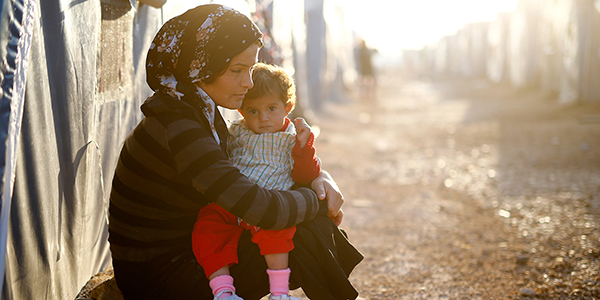 |
Syrian Refugee Women and Girls in Turkey & The Istanbul Convention
Canan Güllü
“Opened for signature in Istanbul in May 2011, The Council of Europe Convention on Preventing and Combating Violence Against Women and Domestic Violence is the first legally-binding instrument in Europe in its field, and the most far-reaching international treaty to tackle this serious violations of human rights. It is also the first international treaty to contain a definition of gender. This definition refuses to solely categorize women and men biologically as female or male, and highlights the socially constructed roles assigned to women and men, arguing that certain roles and behaviors can contribute to the social acceptance of violence against women.”
“Despite being the first country to sign and ratify the Istanbul Convention, little headway has been made in Turkey to address and combat violence against women. The implementation of the Convention is poor and limited due to a lack of political will. Feminists in Turkey have been taking action in many ways to advocate for the implementation of the Istanbul Convention within the broader commitment of gender equality and ending violence against women in Turkey. Efforts have been made with concrete proposals for action at a local and national level in order to expedite the implementation of the convention and encourage dialogue among key stakeholders in order to improve framework and provision.”
|
|
|
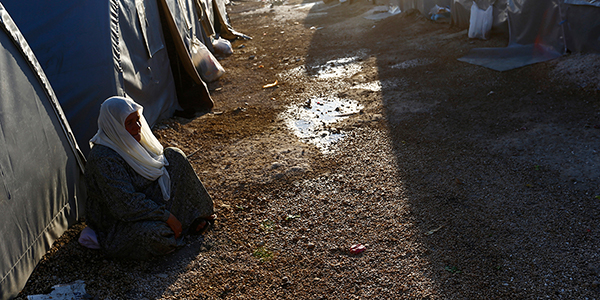 |
The Impact of Conflict on Women and Girls
Iris Bjorg Kristjansdottir
“One of the areas that systematic barriers are apparent and urgent for women is in conflict and humanitarian settings. The reality of women that have been forced to flee and migrate is often times indescribable. Even if temporary refuge and shelter are provided, food insecurity, fear of an uncertain future, and living conditions far below that of the poverty lines remain unfortunate parts of women’s lives. Moreover, women and girls are more susceptible to abuse and exploitation in conflict settings and are more likely to be forced to engage in sexual transactions for money and access to services.”
“In order for women to benefit equally from interventions, targeted actions for women and girls need a different approach. In the case of Turkey, there is a tailored coordination mechanism in response to the Syrian crisis; a regional Refugee and Resilience Plan17 (3RP) is developed and revised each year, with active participation of 46 institutions and organizations under the leadership of the Government of Turkey. UN Women has in recent years contributed to the coordination mechanism by enhancing and strengthening the overall gender responsiveness.”
|
|
|
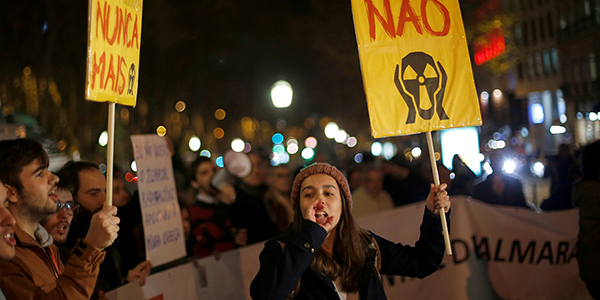 |
Security Council Weapons of Mass Destruction and Feminist Foreign Policy
Marissa Conway and Asha Herten-Crabb
“Feminist foreign policy is a policy framework to encourage gender, racial, and economic justice. It centers the process of policymaking on the experience of those affected by policy and in this way offers a new and unique opportunity to restructure the institution of foreign policy. Rather than rely on the threat of destruction as a means to maintain peace, FFP reorients how we understand and conduct security to undo global patterns of oppression and scrutinize structural violence.”
“Analyzing nuclear policy through an FFP lens is not simply about encouraging greater female representation in nuclear policy. It inquires into how we broadly understand security as a threat-based system and questions the very justifications for maintaining such destructive force as the ‘only’ way to maintain peace. FFP explores how the power is maintained with nuclear weapons possession and how this shapes inequalities within global hierarchies. Ultimately, FFP calls for the total elimination of nuclear weapons. It is interesting, then, as nuclear possessors and members of the P5, that France and the UK are expressing interest in feminist foreign policy. While it is yet unclear as to what these policies will include, FFP provides a uniquely potent path toward amplifying alternative conversations and feminist perspectives on nuclear policy in the very heart of the nuclear elimination resistance.”
|
|
|
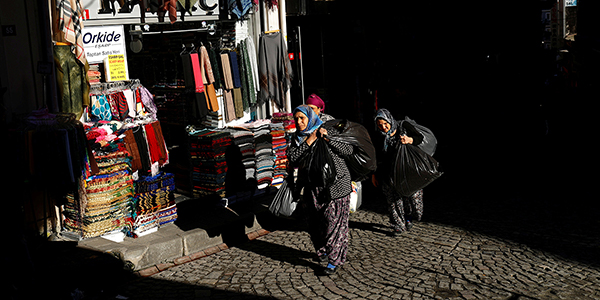 |
A Gender Equal Approach to Istanbul’s Urban Development
L. Yıldız Tokman
“Addressing the urban environment with a gender-sensitive approach involves a dynamic and differentiated attitude. In addition to the socio-economic issues, it is important for urban planners to consider the question of how to design an urban space that is gender-sensitive. A design and planning approach that takes into account the gendered nuances of all urban dwellers in spatial processes should be developed. In the development of our cities, urban spaces should be created with an egalitarian approach and universal planning and design principles.”
“Istanbul’s Beylikdüzü district has shown the most promise in having gendered policies, programs, and projects. For instance, the Women and Men Equal Opportunity Commission was established within the Municipal Council in 2015 and a gender equality and gender-sensitive budgeting workshop was held in April 2016.”
|
|
|
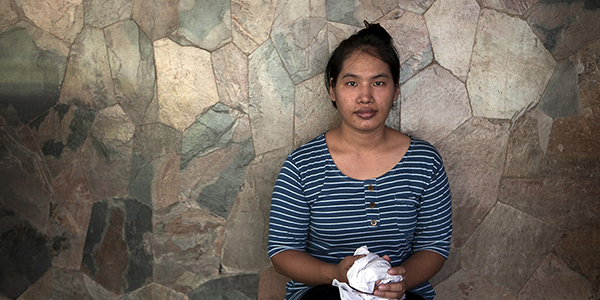 |
Domestic Work in the UAE: The Moral Dilemma of the Day Off
Rhacel Salazar Parreñas
“The kafala system establishes the terms of legal residency for domestic workers in Arab States. Under the kafala, domestic workers are without labor market or employment flexibility as they are technically bound in a relationship of servitude with their sponsor (kafeel) whose permission they must secure in order to terminate or transfer employment. Typically, a migrant worker also cannot enter or exit the country without the approval of their sponsor. The kafala is technically a sponsorship system that assigns full legal responsibility of a foreign worker to their kafeel, who in the case of domestic work would be the employer.”
“The challenge of enforcing the new labor laws, the popularity of the kafala system, and the continued legal responsibility of employers for the actions of workers present an uphill battle towards Improving labor protections for domestic workers in the UAE. However, it behooves the state as well as other countries in the MENA region to recognize the rights of domestic workers and reform the central employer-employee relationship.”
|
|
|
Interested in contributing an op-ed to TPQ's blog?
For guidelines click here. |
|
|
The Premium Corporate Sponsor of this Issue
 |
|
|
 |
Phone: +90 212 621 4442 - +90 212 621 9258 Fax: +90 212 531 8718 info@turkishpolicy.com
Click to unsubscribe |
|
|






















